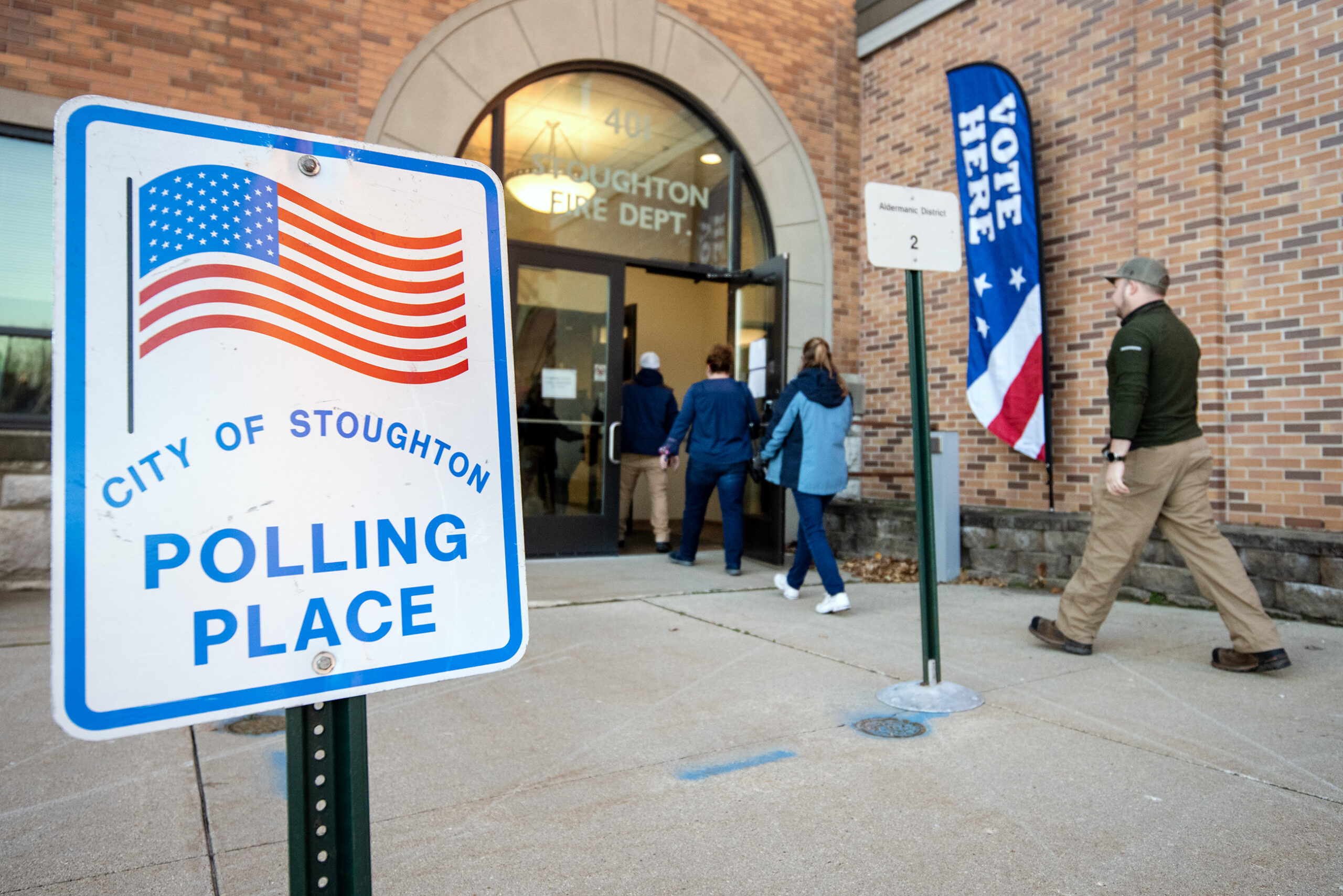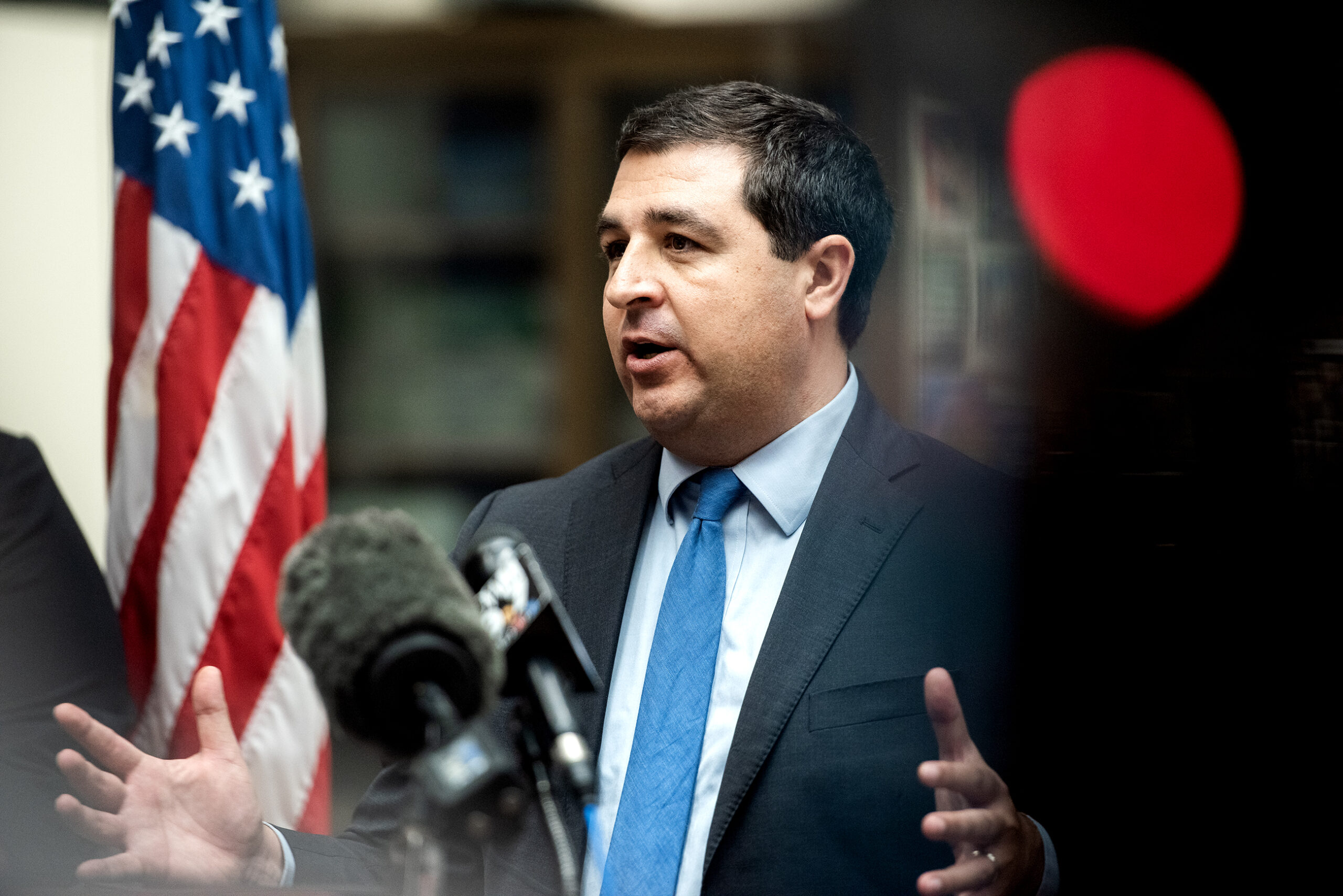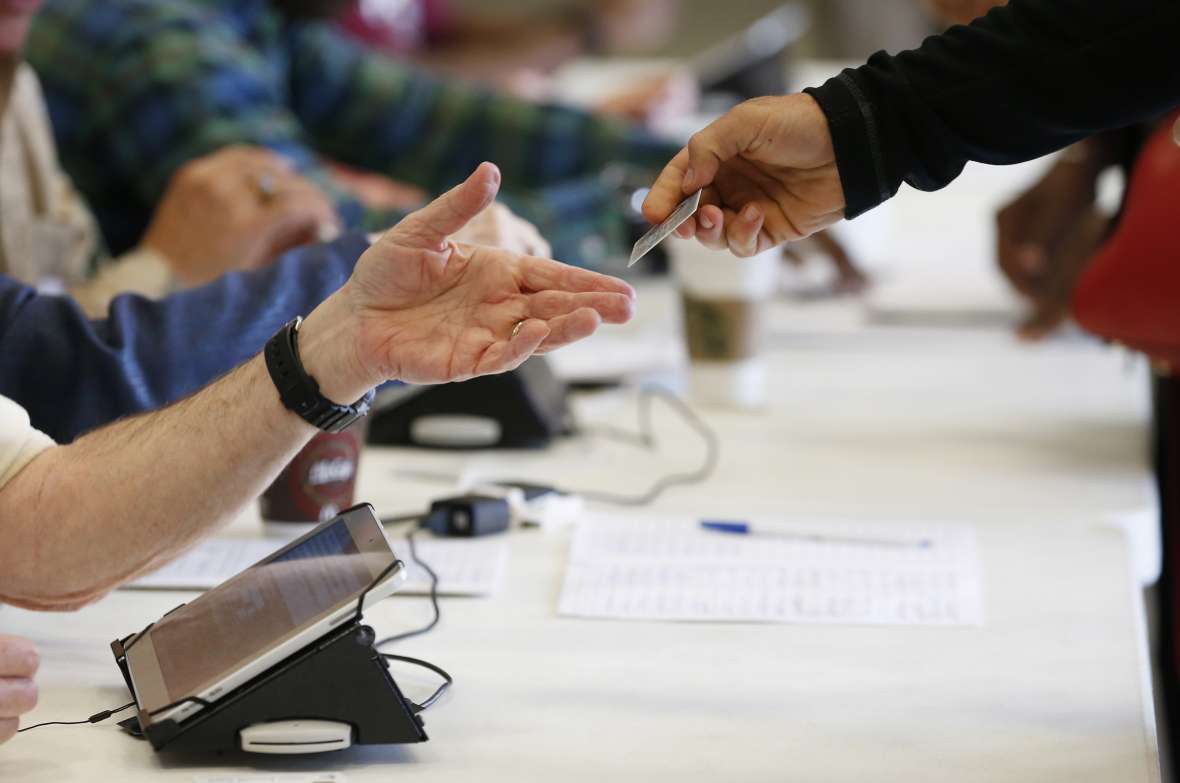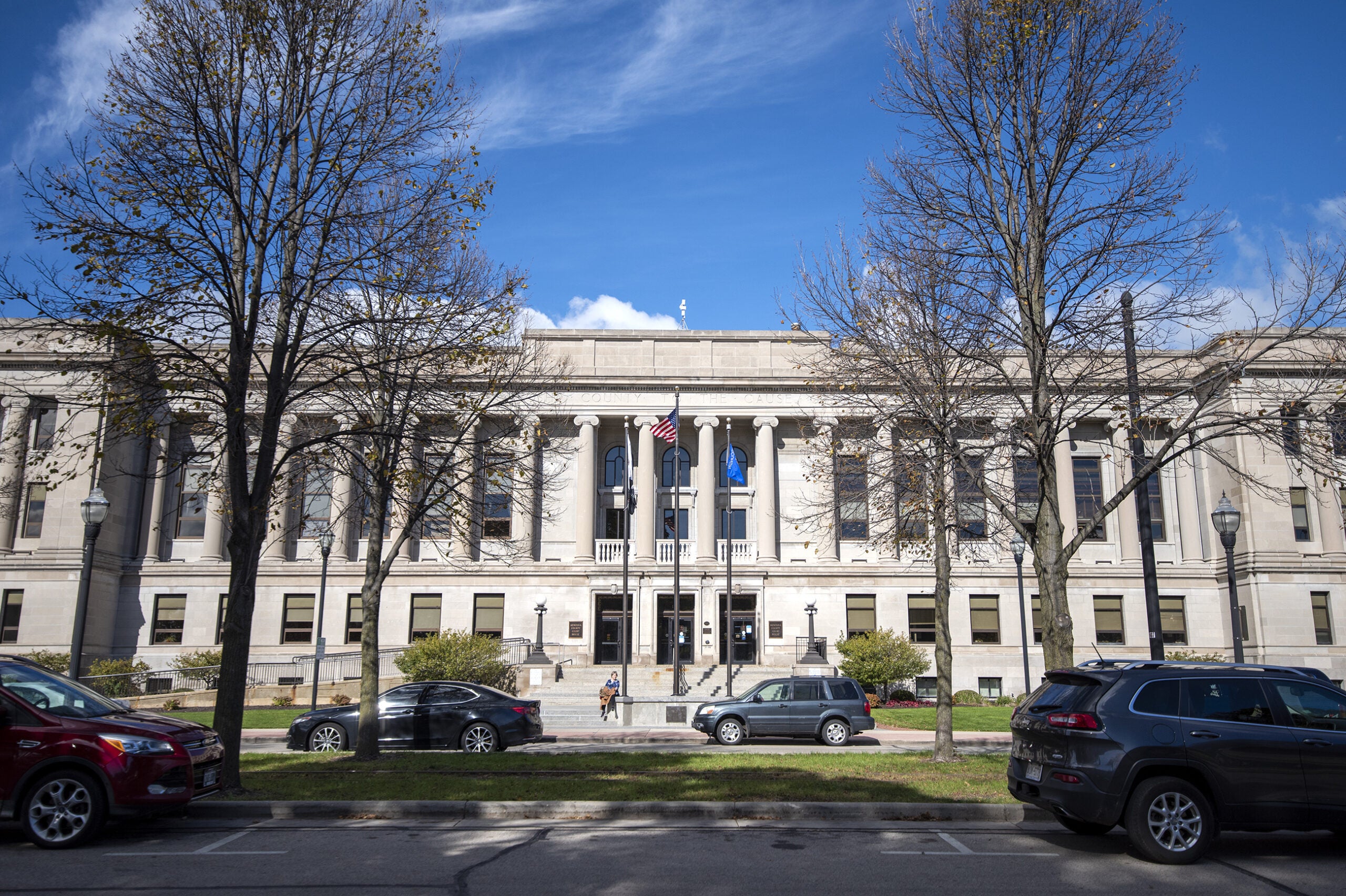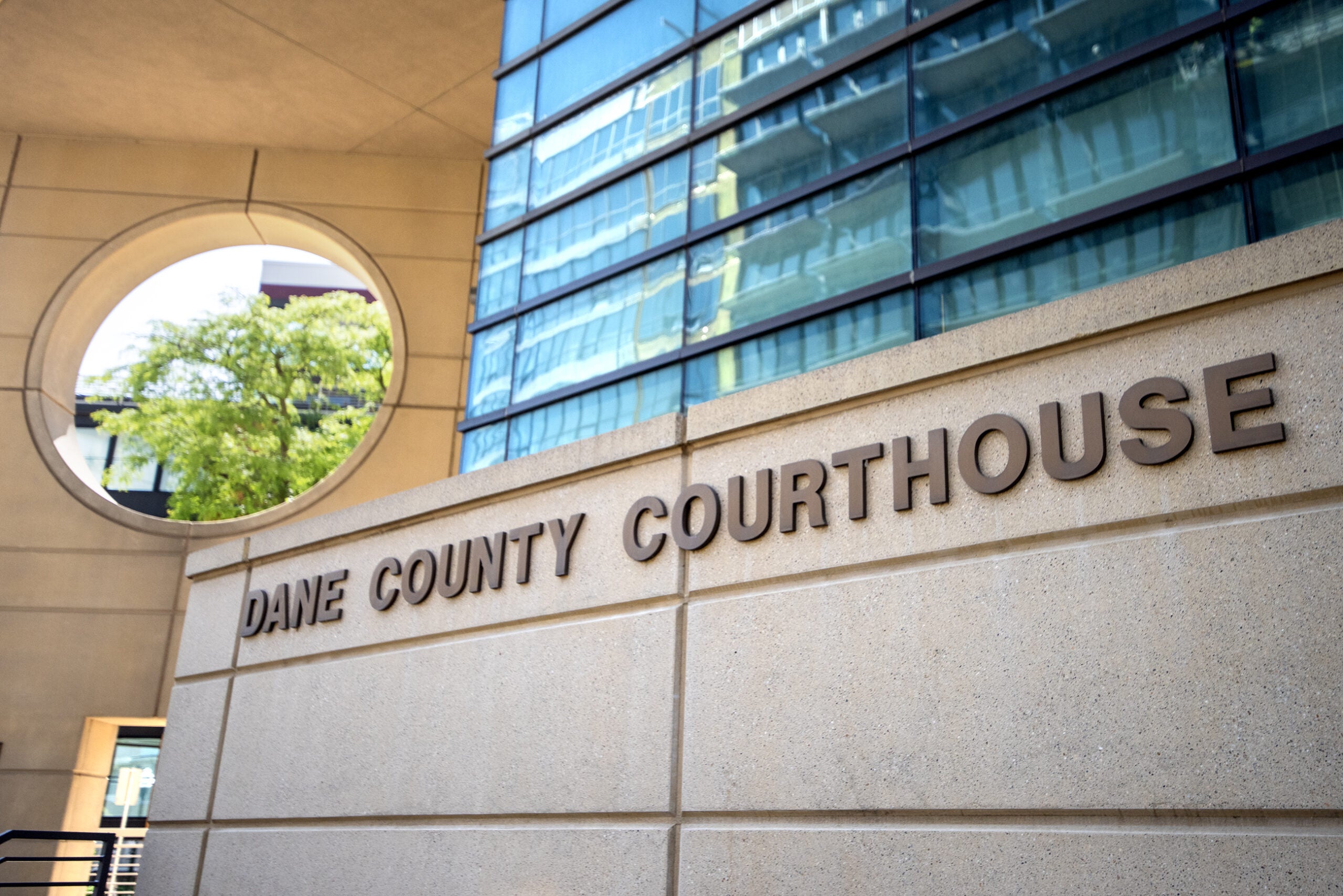Wisconsinites are weighing amendments to the state Constitution that would expand criteria for setting cash bail.
That proposal, which is before voters in the April 4 statewide election, is actually divided into two ballot questions. Here’s what voters need to know.
What would Question 1 do?
Stay informed on the latest news
Sign up for WPR’s email newsletter.
Republican state legislators, who were joined by some Democrats, voted to bring questions 1 and 2 to statewide ballots.
Current language in the state’s Constitution lists conditions a judge may consider when deciding to release someone from jail while that person is awaiting trial. Those conditions include ensuring that the defendant appears in court, preventing witness intimidation and preventing “serious bodily harm” to members of the community. As of now, serious bodily harm is defined “bodily injury which causes or contributes to the death of a human being or which creates a substantial risk of death or which causes serious permanent disfigurement, or which causes a permanent or protracted loss or impairment of the function of any bodily member or organ or other serious bodily injury.”
Question 1 would amend language in that section from “serious bodily harm” to just “serious harm.” In a document released by the proposal’s Republican sponsors, Sen. Van Wanggaard and Rep. Cindi Duchow, lawmakers argue the bodily harm definition is too narrow, and said the changes would give judges more flexibility to protect public safety.
That assertion is completely false, said Patrick Cafferty, a criminal defense attorney with nearly 30 years experience in courtrooms in the Racine and Kensoha areas.
Cafferty noted that under the current system judges often set non-monetary conditions for defendants being released from jail before trial. For people accused of sex crimes against children, that typically includes a prohibition on being in contact with anyone under the age of 18.
Non-monetary conditions also routinely include requirements like ankle monitoring, house arrest or drug screenings. A judge could also bar someone from being in contact with witnesses or from being on social media.
Even so, Wanggaard says it makes sense to have the Consitution and state law more explicitly address what types of harm judges can consider.
“It’s so we have clarity, so there’s no, there’s no guessing what a judge can and can’t do,” Wanggaard said.
Language approved by state lawmakers would set a definition of serious harm that would go into effect should voters approve the amendment. Democratic Gov. Tony Evers’ hasn’t responded to questions about whether he plans to sign that legislation, which defines serious harm as causing injury, death or related mental anguish. It also includes any economic loss over $2,500.
What would Question 2 do?
Question 2 would beef up the list of factors, as written into Wisconsin’s Constitution, that judges can weigh when setting cash bail.
Currently, that section says court officials should consider how likely a defendant is to show up in court. The new language would add to that criteria by directing judges to consider “the totality of the circumstances,” including past convictions for violent crimes.
Why is the bail issue split into two ballot questions?
Since the proposed changes technically constitute two separate amendments, Wisconsin’s Constitution requires voters to pass each individually, according to Jillian Slaight, an analyst with Wisconsin’s nonpartisan Legislative Reference Bureau.
Officials split up the two questions for legal reasons, because the state’s Supreme Court has held that separate changes in such an amendment must be posed to voters separately, said Scott Kelly, chief of staff to Wanggaard.
How much of a difference would the amendments make?
Law enforcement groups, including the Wisconsin State Lodge Fraternal Order of Police, have endorsed the changes, saying they would make the public safer by allowing judges to consider a broader array of circumstances.
Both candidates running for an open state Supreme Court seat April 4 — liberal Janet Protasiewicz and conservative Daniel Kelly — also say they support the amendments.
But Wisconsin’s Office of the State Public Defender has criticized the proposal, saying it would expand a flawed bail system where freedom often depends on someone’s ability to pay. Critics also assert the changes could burden taxpayers by increasing the number of people stuck in jail before trial. The Wisconsin chapter of the American Civil Liberties Union has blasted cash bail as perpetuating a “two-tiered system of justice,” and suggested that the amendments could violate clauses in the U.S. Constitution guaranteeing due process and prohibiting excessive bail.
While it’s possible the changes could lead to a spike in Wisconsin’s jail population, Marquette Law Professor Michael O’Hear says it’s difficult to gauge how much the amended language would change what judges and court commissioners decide to do.
“The reality of our criminal justice system is that the great majority of people who are defendants in it are poor,” he said. “So if there’s a large increase in bail amounts, that necessarily means a large increase in the number of people who are being held in jail because of their failure to be able to satisfy the monetary conditions.”
But in practice, O’Hear said, court officials have broad leeway when weighing whether to set bail, as well as whether to impose non-monetary conditions of release like requiring someone to submit to ankle-monitoring.
“It’s extremely rare for there to be any kind of successful appeal made of any decision made for bail or other conditions of pretrial release,” O’Hear said. “The only limitation is the creativity of the judicial official who is coming up with the conditions, again, subject to the requirement that there was a permissible purpose.”
Cafferty, the defense attorney, says he believes judges already have the authority necessary to protect the public when setting bail.
“This appears to be an effort on the part of the Legislature to make it so that they decide instead of the judges, and I’m in complete disagreement with that,” he said. “This is why we elect judges.”
Cafferty also says he believes it’s a disservice for the public conversation on bail to focus on cases he views as extreme — like that of the Waukesha parade attacker, who was free on a $1,000 bail when he intentionally drove his SUV into a crowd in 2021 and killed six people. Cafferty says that’s not fair to the vast majority of people accused of crimes, all of whom are supposed to be presumed innocent until they’re convicted.
“The worst laws that are implemented in this state and any other state are laws that are in reaction to single cases or very small number of cases,” he said. “It’s an effort to use the criminal justice system as a political football and that’s never appreciated by the people within the system who actually know what they’re doing.”
Wanggaard, however, argues the changes would make the bail process more fair while bringing Wisconsin’s system in line with other states.
“These amendments clearly would give the flexibility back to the judges to make those determinations and those considerations, but it also holds the judges accountable, and they do that when they do make an assessment of how they’re setting the bail,” Wanggaard said.
Wisconsin Public Radio, © Copyright 2025, Board of Regents of the University of Wisconsin System and Wisconsin Educational Communications Board.
